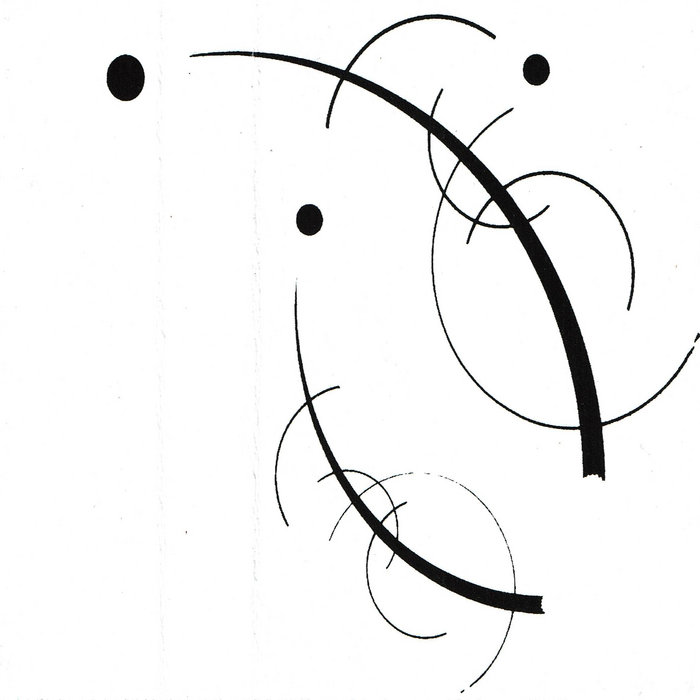
Taking inspiration from the natural rhythms of sleep and patterns of brain activity, the slow eerie disintegration captured in Zenxen’s release is like an auditory study of the subconscious, the delirium we face in the deepest hour of the night.
The Bandcamp description opens by saying that “The rhythms of sleep are unknown to the sleeper. Usually, only with interruption, or dreams, or through wakeful observation, are we made aware of them.” This is an excellent to guide us into the deep, murky water of the eery ambient release by Xenzen. The sounds are dim and mysterious, the brain tries in vain to pattern-match the slow oscillations that unfold to something familiar. The creaking hull of a ship as the metal contracts in freezing water, perhaps, its surface probed by the hypnotic light-beams of lost anglerfish.
Many of us who struggle with sleep take refuge in nightlife, replacing nocturnal angst with light and sound and good company. Anyone who has struggled with insomnia knows the fever pitch of delirious thought, of time dilation, the general anxiety of being unable to sleep as the clock reads 2, then 3, then 4. If you suffer from night terrors, all the worse. An errant shadow from a street lamp transfigures itself, with the aid of a ruptured REM cycle, into a ghoul or a witch, suffocating the life out of you. It is this deep state of confusion and depersonalization that this release succeeds in capturing, the lingering sense of dread after having woken from a nightmare that can never be quite shaken until dawn.
It moves itself along with a feeling of disintegration, or slow sinking through silty water, rather than any kind of purposeful forward momentum. In childhood, many of us experience a dream in which we wake up outside in the forest, far away from our bedrooms. Perhaps the night holds such sinister power over us because it resists the governance of man. Certainly, we fear the dark. The sense that there is something terrible just out of view, the fear that is our birthright of the unknown, the total blackness of the deepest umbra of our bedrooms. The night is the realm of nature, of magic, of forces that have operated since long before we were born and will continue to govern long after we are gone. The effect on deep ocean currents of the cancellation of gravity by the moon, crickets and bats modulating the pattern of their song to honor some subtle shift in the magnetic field of the Earth; the sound design evokes all of these processes.
A dizzying loop of voices muffled by tides of harmonic frequency-drenched noise, like the sounds our cochlea generates when an otoscope presses hard against our inner ear. Outbursts of something not quite music, rather some subatomic particle that self-assembles to form music. Something like rhythm may appear, then vanish again, like the exact moment at the witching hour when all goes mysteriously silent, choreographed by some primordial signal that we have lost access to. Slow modulations shape a haze of white noise in slow oscillations apparently designed to sonically model actual brain rhythms. Neurons tend to fire in self-regenerating cascades of activity, which form electrical patterns which can be detected at the scalp by an EEG.
The raw pattern, the electromagnetic superposition of literally millions of neuronal membrane potentials summed together, is categorized by frequency bands. These waves are generally believed by neurologists to correlate to the level of activation of our minds. When we go to sleep, the frequency of our brainwaves slow, descending through bands of activity labeled from Gamma, the fastest commonly seen oscillation, down through Beta, Alpha and Theta to Delta waves, the slowest pattern at roughly two cycles per second, which dominates in deep rest. This descent is sonically modeled by the path the release takes. The slow modulations, the hypnotic undulating layering of an icy wind, a drowsy sleepwalker, an AM radio wave somehow interrupting a dream by slipping into the right frequency band at just the right time, slows into trickles of random information mumbled aloud like the phone number of an ex, a sleepless night spent meandering the streets of a foreign city; the frayed ends of memories our subconscious mind has decided, without our consent, to delete forever. Our apparently intimate psychological states speak a language we barely even aware of. If consciousness is only the hum of certain mysterious inner machines, then perhaps by imagining what this hum might actually sound like, as this release does; we may intuitively reach some deeper understanding of it’s machinations.
-Winston Mann
Check out Dirty Epic music recommendations here.
Listen to our podcasts here.
Find out more about our events here.

